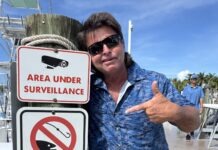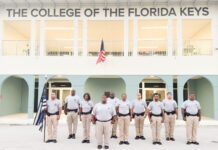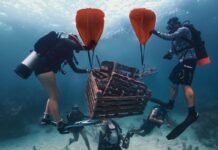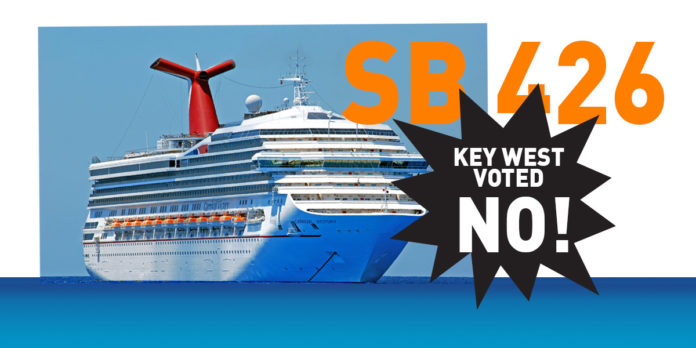
The bill that would undo Key West’s vote to limit cruise ships took another step forward Wednesday morning, when another state senate committee approved Senate Bill 426, known as the Port Preemption Bill.
The senate’s Community Affairs Committee on Wednesday voted 5-3 to support SB 426, which takes away port cities’ authority to turn away certain ships based on size, passenger count or other characteristics. Filed by Republican Sen. Jim Boyd of Bradenton, the bill also expressly nullifies any local referendum or ballot initiative to change a city’s port operations. The bill applies to the four Florida ports owned by cities — Key West, Pensacola, St. Petersburg and Panama City.
Representatives from several environmental groups, including Surfrider Foundation, Sierra Club and 1,000 Friends of Florida, spoke against the bill at the March 24 meeting, as did lobbyist Josh Aubuchon of Florida Ports for Economic Independence. Aubuchon read a letter from Key West fishing Capt. Will Benson, a member of the Key West Committee for Safer Cleaner Ships that spearheaded Key West’s voter referendum to ban large cruise ships from visiting the island city.
“Every time one of these enormous ships comes to Key West it rips up the bottom, chews up everything in its path, and leaves a trail of bleeding sea floor behind it,” Benson wrote to the committee. “Since 2005, ships calling on Key West are some 45% larger. And there are a lot more of them. We have never had a say in this matter until now. When cruise ships first started coming, they were smaller and less frequent, and they didn’t have the same disastrous effect on the environment. But over the years those who profited the most wanted more and bigger ships. We never got a say in this. The men pushing this bill made fortunes while we watched our fishing decline, our reef die and the channel floor bleeding six times a day with silt plumes six miles long. There was nothing we could do. Those men made a deal with the devil and we got taken for the ride. Then COVID hit. With cruising halted, the bleeding stopped.”
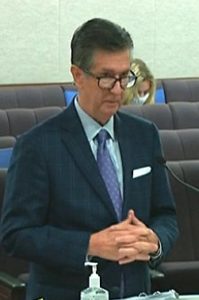
After the environmental opposition spoke, committee member Sen. Dennis Baxley, a Republican from Central Florida, said, “I think some of those folks are the short-sighted ones. In maritime behaviors, you don’t just make your own rules on each stop along the way. We’re being very unwelcome to many people who are being introduced to Florida.”
Sen. Ed Hooper of Palm Harbor, on Florida’s west coast, said, “I think the way that referendum was phrased, with that severe limitation, it’s by de facto eliminating almost every class of cruise ship sailing the seas today. I wish they would’ve framed their referendum a little more realistically.”
Boyd, the bill’s sponsor, reminded the committee before the vote of the property owners’ rights issues involved. “What about the private property rights of the people who own the docks down there?…And we’ve seen no credible scientific data that says these ships are tearing up the seafloor,” Boyd said. “All we’re saying is that they can’t discriminate against certain ships based on their size.”
After the March 24 meeting, Arlo Haskell, treasurer of Safer Cleaner Ships, said, “Today, we heard Keys fishermen, environmental groups and a former assistant secretary of the interior under President Reagan talk about the dangers this bill poses to the rule of law and the health of the Great Florida Reef. It seems the only place this bill is popular is in the Florida Legislature, where money counts for more than common sense. We are calling on Governor DeSantis to step in and stop this bad bill before it destroys the environmental recovery we’ve seen since COVID.”
Haskell and the Key West committee sent a letter on March 22 to the governor, asking him to oppose SB 426 in an effort to protect the coral reef and support the voters’ democratic process.
The letter was signed by representatives of 24 environmental groups, including Greenpeace USA, Friends of the Everglades, Florida Wildlife Federation as well as Keys fishing guides, Reef Relief and Last Stand of the Florida Keys.
Senate Bill 426 will be considered by one more committee before heading to the senate floor for a final vote. An identical bill is making its way through the Florida House of Representatives.






